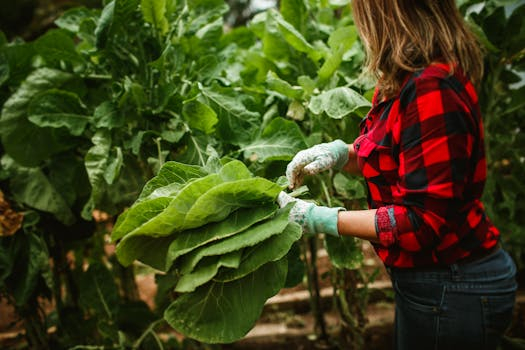Community Gardens: Growing More Than Just Vegetables
Community gardens have been growing in popularity over the years, and for good reason. These green patches of land provide a wide variety of benefits for both individuals and communities as a whole. While most people associate community gardens with growing fresh produce, there is so much more to these gardens than just vegetables. Let’s take a closer look at what community gardens are, and how they are making a positive impact beyond just supplying home-grown veggies.
The Definition of Community Gardens
Community gardens are shared plots of land that are gardened collectively by a group of individuals in a community. Typically, community gardens are located in urban areas where access to green space and fresh produce may be limited. The land is often provided by the local government or a non-profit organization, and the garden is maintained and tended to by volunteers.
The Many Benefits of Community Gardens
As mentioned, community gardens offer much more than just a place to grow fresh fruits and vegetables. Here are some of the key benefits that these gardens provide:
1. Improved Access to Fresh Produce
One of the most obvious benefits of community gardens is the access to fresh, locally-grown produce. For individuals living in urban areas, access to fresh fruits and vegetables can be limited and expensive. Community gardens offer an affordable way to access fresh produce, promoting a healthy diet and lifestyle.
2. Community Building
Community gardens are a great way to bring people together and foster a sense of community. Members of the garden often come from diverse backgrounds and ages, making it an excellent opportunity to meet new people and build relationships. Working together in the garden also promotes a sense of teamwork and collaboration.
3. Environmental Sustainability
Community gardens are a great way to promote environmental sustainability. Growing food locally reduces the need for transportation and packaging, decreasing the carbon footprint. Waste from the garden, such as compost, can also be used to enrich the soil, reducing the need for chemical fertilizers.
4. Educational Opportunities
Many community gardens offer educational programs and workshops, providing valuable knowledge on gardening and sustainable living practices. These programs can be beneficial for all ages, from teaching children about where their food comes from to providing adults with a new hobby.
5. Mental Health Benefits
Gardening has been proven to have numerous mental health benefits, such as reducing stress, anxiety, and depression. Working in a community garden allows individuals to disconnect from technology and the hustle and bustle of daily life and connect with nature, promoting a sense of calm and relaxation.
How You Can Get Involved
If you’re interested in joining or starting a community garden in your area, here are some ways you can get involved:
1. Volunteer Your Time
Most community gardens rely on volunteers to help maintain the garden. Reach out to your local community garden to see how you can get involved. This could involve anything from planting and weeding to helping with administrative tasks.
2. Become a Member
If you’re passionate about gardening and want to have your own plot in a community garden, consider becoming a member. Many gardens offer affordable membership fees and provide all the necessary tools and equipment to get started.
3. Donate to Support the Garden
Community gardens often rely on donations to help cover expenses such as tools, seeds, and water. Even a small donation can make a big difference and help keep the garden thriving.
Conclusion
Community gardens offer a multitude of benefits for both individuals and the community as a whole. From providing access to fresh produce to promoting environmental sustainability and fostering a sense of community, these gardens are making a positive impact in more ways than one. Get involved in your local community garden to reap the rewards and contribute to a healthier and happier community.









